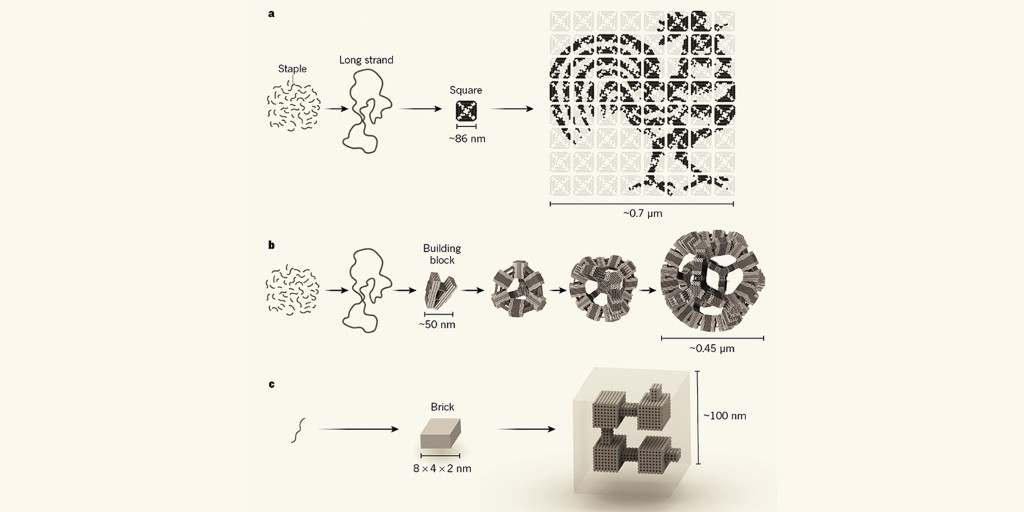Article

DNA can be designed to self-assemble into target shapes, but the size and quantity of objects that can be prepared have been limited. Methods to overcome these problems have now been found.
"Self-assembly processes occur in nature in various forms, from molecular-level protein folding and the formation of lipid bilayers to the establishment of Earth’s entire biological system1. Scientists have long aspired to construct artificial objects using self-assembly to reach the dimensions and complexity of cells or organelles, with the aim of building synthetic cellular machines for research, engineering and medical applications. Four papers2–5 in this issue address this goal by reporting methods for scaling up the sizes and production of self-assembling, designer nanostructures made from...
Show More0 likes
Comments
MORE RESOURCES FROM SOURCE
More from FoundryBase nature.com








No comments yet. Be the first to comment!